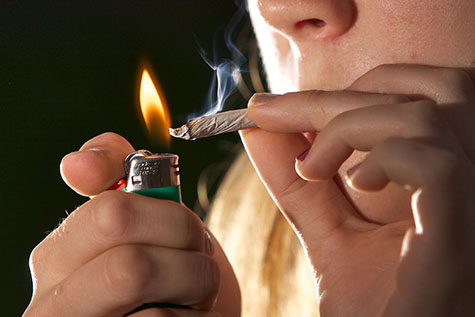With marijuana use rising among pregnant women, new study raises concerns
Pregnant women who use cannabis may slightly increase the risk their unborn child will develop psychosis later in life, suggests new research from Washington University in St. Louis.

The findings come on the heels of several national studies documenting a dramatic increase in marijuana usage by pregnant women, including a 2018 study from Washington University School of Medicine in St. Louis that found past-month marijuana use among pregnant mothers in the United States increased by 75 percent between 2002 (2.85 percent) and 2016 (4.98 percent).
As more states legalize medicinal and recreational use of cannabis, other reports suggest that many marijuana dispensaries commonly suggest cannabis as a natural cure for pregnancy related nausea.
This latest study, published March 27 in the journal JAMA Psychiatry, suggests that pregnant women should be discouraged from using cannabis at any time in their pregnancy because so little is yet known about its health effects.
But its findings also raise new concerns that prenatal exposure to cannabis may pose a greater risk after the fetal brain begins to develop a receptor system for endocannabinoids, which are part of the naturally occurring neurotransmitter network through which cannabis affects the brain.

Bogdan, who directs the Washington University BRAIN Lab where the research took place, said these latest findings build on other basic research suggesting that endocannabinoid signaling may contribute to processes, such as neurogenesis and neural migration, that play important roles in early development of brain structure and connections.
“This study raises the intriguing possibility there may be developmental windows during which cannabis exposure may be more likely to increase psychosis risk,” he said.
Tetrahydrocannabinol (THC), which is the principal psychoactive component of marijuana, mimics our body’s endocannabinoids and binds to endocannabinoid receptors to exert its effects.
Various studies have confirmed that THC crosses the placental barrier to gain access to the developing fetus.
“Data from rodent studies suggest that the endocannabinoid type 1 receptor, through which the psychoactive effects of THC largely arise, is not expressed until the equivalent of 5-6 weeks of human gestation,” Fine said. “Given that mothers in our study on average learned of their pregnancy at 7.7 weeks, it is plausible that any impact of THC on psychosis risk would not arise until sufficient endocannabinoid type 1 receptors are expressed.”

Among the 4,361 children sampled in this study, 201 (4.61 percent) were reported to have been exposed to marijuana before birth; of these 63 were exposed following maternal knowledge of pregnancy.
Bogdan and his co-authors acknowledge that the study has many limitations, including the small sample of prenatal cannabis–exposed offspring; potential maternal underreporting of use during pregnancy; imprecise data on timing, amount, frequency and potency of cannabis exposure; absence of data on whether childhood psychosis proneness is associated with conversion to psychosis; and lack of data on some potential confounders, such as maternal stress and genetic risk of psychosis among parents.

The study provides further evidence that expectant mothers should think twice before considering cannabis usage during pregnancy.
“Given increasing cannabis accessibility and potency, as well as growing public perceptions that it’s safe to use, it is critical for additional research to understand the potential adverse consequences and benefits of cannabis throughout development and how these associations may arise.” Bogdan said.
“In the meantime, evidence that prenatal marijuana use is associated with a small increase in offspring psychosis proneness suggests that marijuana use during pregnancy should be discouraged until more is known.”
Other Washington University co-authors include Nicole Karcher, post-doctoral research scholar; Arpana Agrawal, professor of psychiatry; and Cynthia Rogers, MD, assistant professor of child psychiatry, all in the Department of Psychiatry in the School of Medicine; and Deanna Barch, chair of the Department of Psychological & Brain Sciences in Arts & Sciences and the Gregory B. Couch Professor of Psychiatry at the School of Medicine.

No comments:
Post a Comment